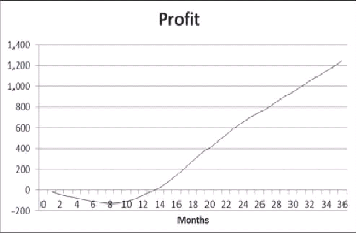Getting started in a proprietary trading firm, or prop firm, can be an exciting endeavor for aspiring traders looking to enter the financial markets. Prop firms provide traders with access to capital, technology, and resources to trade various financial instruments with the goal of generating profits. If you’re considering joining a prop firm, here are five essential tips to help you get started on the right track:
1. Understand the Basics of Trading
Before diving into the world of proprietary trading, it’s crucial to have a solid understanding of the fundamentals of trading and financial markets. Familiarize yourself with key concepts such as technical analysis, fundamental analysis, risk management, and trading psychology. Take the time to educate yourself through books, online courses, webinars, and seminars to build a strong foundation of knowledge and skills. Additionally, consider practicing trading in simulated environments or using demo accounts to gain hands-on experience without risking real capital. This allows you to test different trading strategies, develop your trading style, and hone your decision-making skills in a risk-free setting.
2. Research Proprietary Trading Firms
Conduct thorough research to identify reputable prop trading firms that align with your trading goals, preferences, and risk tolerance. Consider factors such as the firm’s trading philosophy, trading strategies, available capital, technology infrastructure, risk management policies, and commission structure. Look for prop firms that offer comprehensive training programs, mentorship opportunities, and ongoing support to help traders succeed. Read reviews, testimonials, and forums to gather insights from current and former traders about their experiences with different prop firms. Additionally, pay attention to the firm’s regulatory compliance, reputation in the industry, and track record of success.
3. Develop a Trading Plan
Before trading with a prop firm, develop a well-defined trading plan that outlines your trading objectives, risk tolerance, trading strategy, trade management rules, and performance metrics. Your trading plan serves as a roadmap to guide your trading decisions and keep you disciplined and focused in the dynamic and unpredictable environment of the financial markets. Define clear entry and exit criteria for your trades, establish risk-reward ratios, and set realistic profit targets and stop-loss levels to manage your risk effectively. Incorporate principles of money management and position sizing to protect your capital and preserve your trading account over the long term. Regularly review and refine your trading plan based on your evolving experience, market conditions, and performance feedback.
4. Start Small and Manage Risk
When starting in a prop firm, it’s essential to start small. Avoid the temptation to over-leverage or take excessive risks that could jeopardize your trading capital. Instead, focus on preserving capital and maintaining consistent, sustainable returns over time. Implement sound risk management techniques, such as diversification, position sizing, and stop-loss orders, to minimize losses and protect your trading account from significant drawdowns. Accept that losses are an inevitable part of trading and learn from them to improve your trading skills and decision-making process.
5. Seek Mentorship and Continuous Learning
Take advantage of mentorship opportunities and seek guidance from experienced traders within the prop firm or trading community. Learning from seasoned professionals can provide valuable insights, perspective, and practical wisdom that can accelerate your learning curve and help you avoid common pitfalls and mistakes. Actively engage in ongoing learning and professional development to stay updated on market trends, trading strategies, and industry developments. Attend workshops, seminars, and networking events to expand your knowledge, build connections, and stay inspired. Cultivate a growth mindset and embrace challenges as opportunities for learning and growth. Stay curious, open-minded, and receptive to feedback. Adapt and evolve your trading approach as needed.
Take That Step
In conclusion, getting started in a proprietary trading firm requires a combination of education, research, planning, risk management, and continuous learning. By understanding the basics of trading, researching prop firms, developing a trading plan, managing risk effectively, and seeking mentorship and continuous learning opportunities, you can position yourself for success and embark on a rewarding career in proprietary trading. Remember that success in trading takes time, dedication, and perseverance, so stay patient, disciplined, and focused on your long-term goals.











